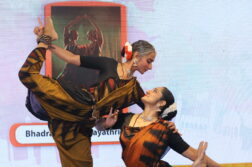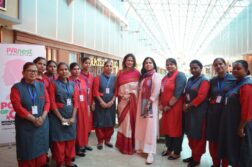So browsing through facebook, social media being my primary source of information of news and views from across the globe, I came across a post undermining Barkha Dutt as a journalist in tune with recent trolls on her and other journalists as being ‘presstitutes’. I was intrigued by the headline ‘Barkha Dutt Gets Hard Slaps When She Tried to Do ‘NDTV’ in New York City’ and surprised too considering the discussion seemed to be on misogyny.
Browsing through the link, which incidentally shared one part of a debate titled ‘What is the future of women in Islam’ on the forum ‘Women in world’ , piqued my interest to see the context of the conversation. Here am sharing the 30 minute link of the panel of 4 Muslim women from across the world sharing their views on Islam and women in Islam.
Interestingly, I noticed, Ayaan (one of the panelists’) quoting Pew’s research in her opening statement on the percentage of Muslims who wanted Shariah to be enforced across the Muslim dominated countries. While all the women on the panel were in congruence in little other than that misogyny existed across religions, cultures and regions, my own quick search threw up another interesting fact on ‘Gender gap & religion’ on Pew’s website. Women by far are generally more religious than men across religions. This despite their marginalization & emaciation through the orthodoxy of religions across the world.
The panel featured:
Ayaan Hirsi Ali, Founder, AHA Foundation and Fellow, Harvard Kennedy School. Who categorically rejects Islamic law as a doctrine that enforces the shariah which makes a rape victim responsible among other hostilities against women. She further goes ahead to embrace muslims and their diversity while rejecting the doctrine of the law. She starts by quoting statistics from Pew Research.
Zahra’ Langhi, Co-Founder & Director, Libyan Women’s Platform for Peace, countered Ayaan, by sharing that shariah isn’t the root cause of misogyny but rather its mis- interpretation through various cultures and regions is the culprit . Shariah, according to her, is intrinsically dynamic in nature and this very principle may have lead to its misrepresentation and misinformation.
Hibaaq Osman, Founder and CEO, Karama Maintained a stand point also opposing Ayaan’s radical views of rejecting Islam since reform can happen only from within. Maintaining the basic 5 tenets of Islam she emphasized the need to reform and evolve.
Farah Pandith, Adjunct Senior Fellow, Council on Foreign Relations. An Indian by birth who moved to the US and has been involvedas a special representative of muslim communities across 80 countries believed in bringing forth the voice of the millenial muslim women who don’t want to be pigeon holed . She further expressed the need to separate the politics of mis interpreted religion that seem to have found space on front pages since set 9/11.
Moderated by Barkha Dutt Director, Barkha Dutt Live Media




